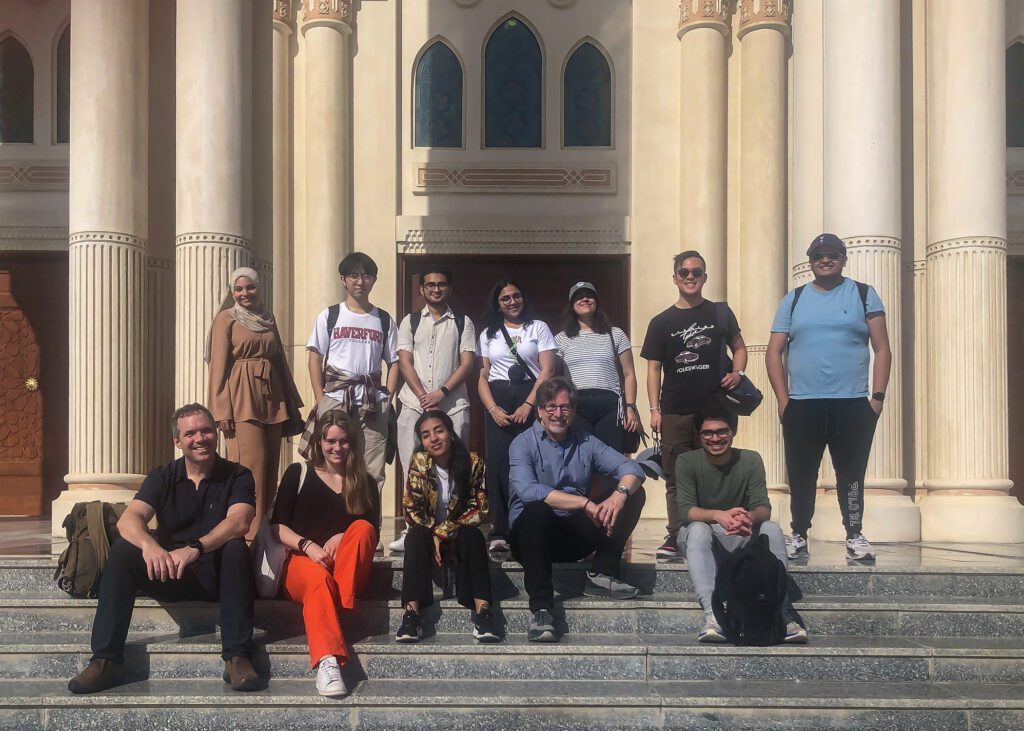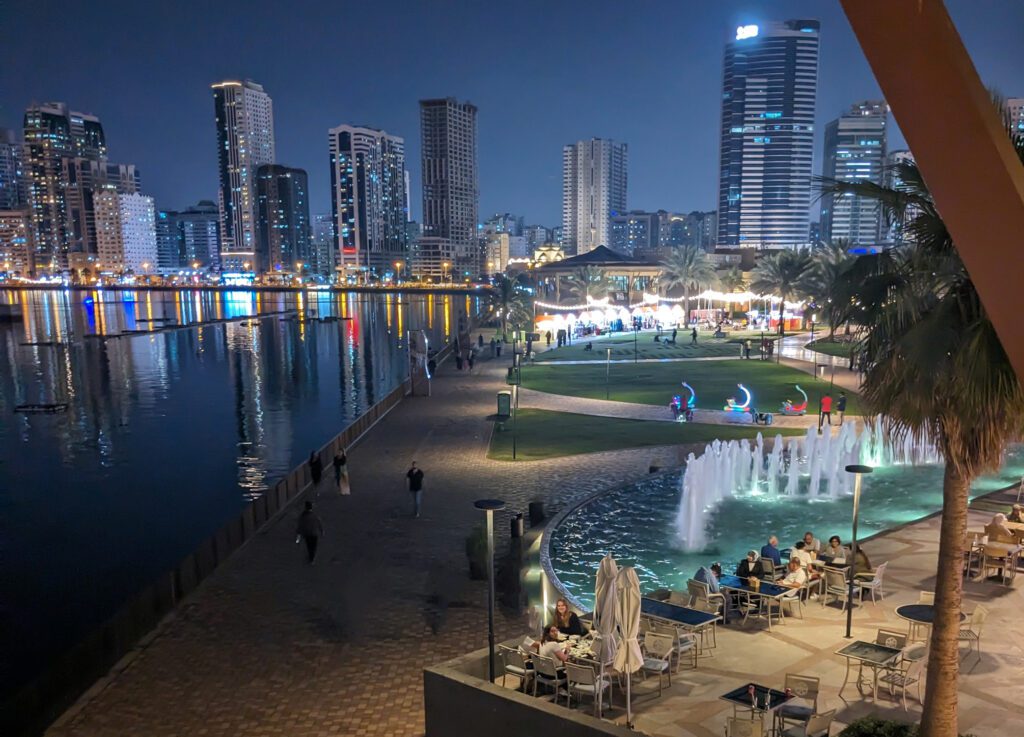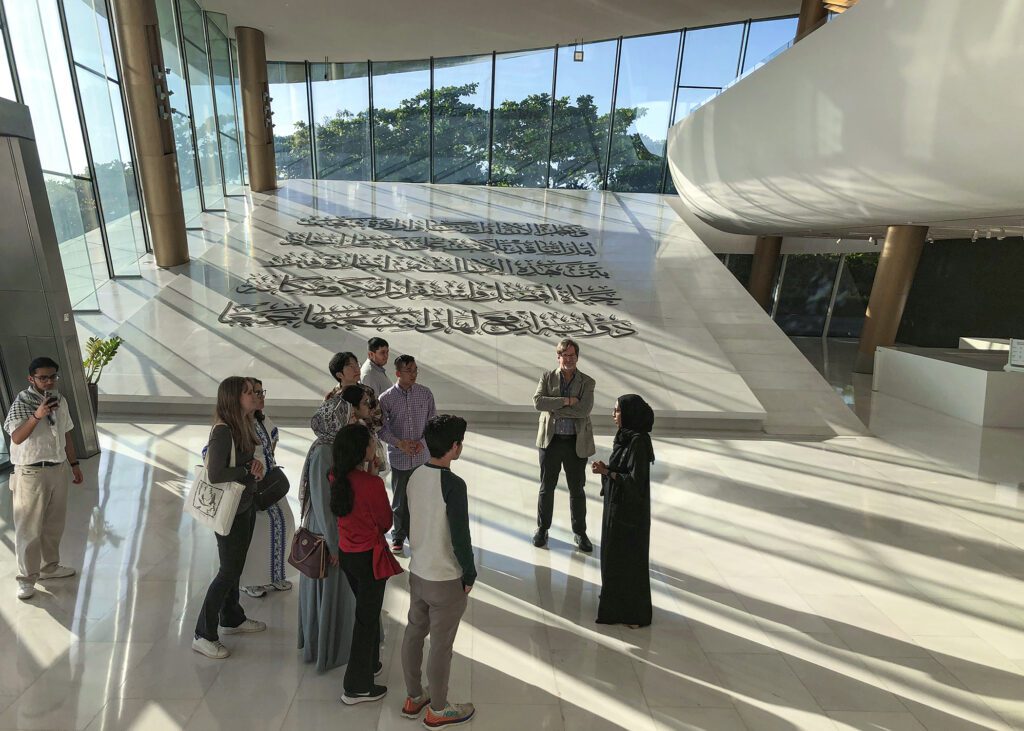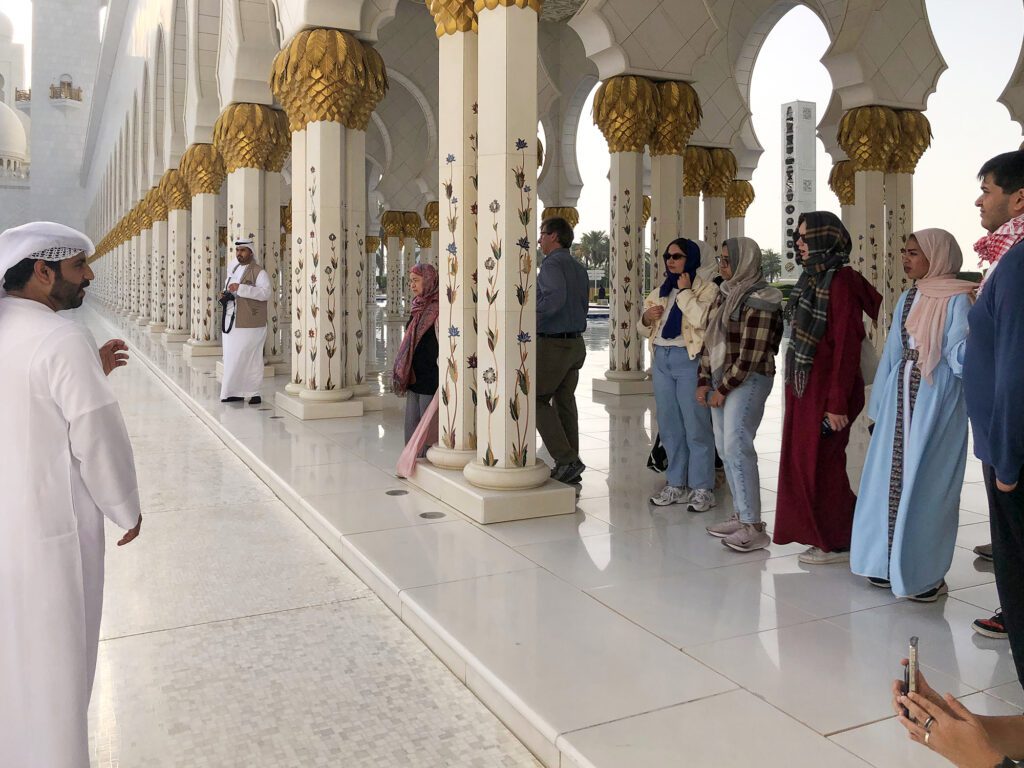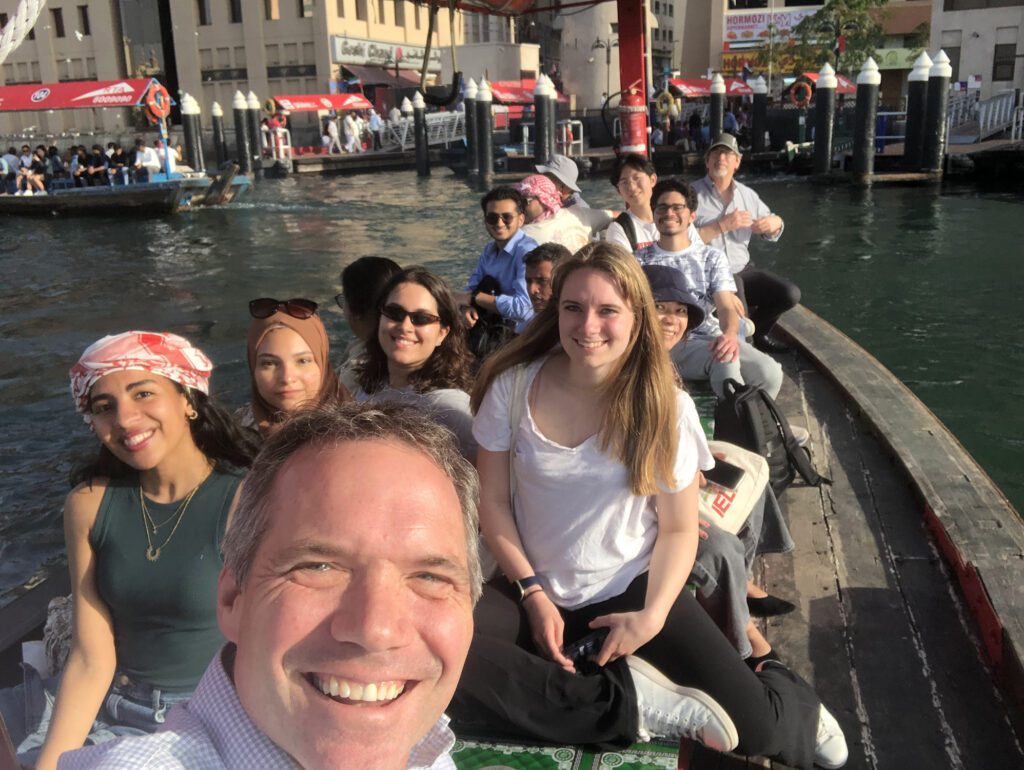Despite 7,000 miles, the vast Atlantic Ocean, a sea, and a gulf separating them, Haverford faculty and students have been collaborating with counterparts at the American University of Sharjah (AUS) in the United Arab Emirates (UAE) for the past two years. Using technologies like Zoom to bridge the distance, the virtual exchange, funded by a Stevens Initiative grant, has allowed both contingents to grapple with issues like the implementation of the United Nations’ Sustainable Development Goals and human rights at home and abroad.
Over spring break, students, faculty, and staff built upon these virtual relationships through a travel experience funded by The Robert W. 1965 and Vivian S. Toan Fund for Engagement with Humanitarian and Middle East Issues. A delegation of 10 Haverford students, led by Executive Director of the Center for Peace and Global Citizenship (CPGC) Eric Hartman and Assistant Professor of Economics Shannon Mudd, packed their bags for a flight to Dubai.
Across their seven-day whirlwind tour of the elective monarchy, they visited their peers at AUS and toured innovative NGOs, tech-forward companies, and numerous important cultural sites, like the House of Wisdom, a beautiful library modeled on the 8th-century library of the same name in Baghdad.
Students were eligible to go on the trip if they had participated in the virtual exchange with AUS or CPGC-funded humanitarian engagement opportunities in the Middle East. “Participants were incredibly diverse and from a range of disciplines, a really wonderful cross-section of the College community,” Hartman says. “They came from across the U.S., Bangladesh, Egypt, and Pakistan, which really added to the discourse throughout the trip.”
Several of the students who participated are Muslim, and the trip to a predominantly Muslim country took place during Ramadan, a month-long holy celebration that requires participants to fast from sun up to sun down. Mudd, Hartman, and both Muslim and non-Muslim students opted to join in the observance. A highlight, Mudd says, was the daily communal breaking of the fast, especially one evening with 1,000 others in the lush gardens of Abu Dhabi’s Sheikh Zayed Grand Mosque.
“It was the most amazing experience of hospitality and community, and it meshed so well with what students had said about why they found Ramadan such an important month,” says Mudd. “Oftentimes, they spoke about community and the breaking of the fast. My experience of this at the Grand Mosque was unforgettable and inspiring.”
Students agreed that the trip offered a lot of value beyond what they had been taught in the classroom. Rafael Montero ’24, an anthropology major who is now beginning policy-focused opportunities in Washington, D.C., through the Truman Fellowship, says his experience in the UAE, where nearly 90 percent of the population are immigrant workers, reaffirmed critical elements of what he learned in his studies at the College.
“Historically, anthropology has often boxed people into a certain culture and framed a certain image of them,” Montero says. “But anthropology at Haverford is very different from that. We’re focused on inequalities and how power inequities affect people differently, especially the marginalized. That was a big takeaway for me.”
All photos courtesy of Shannon Mudd.

